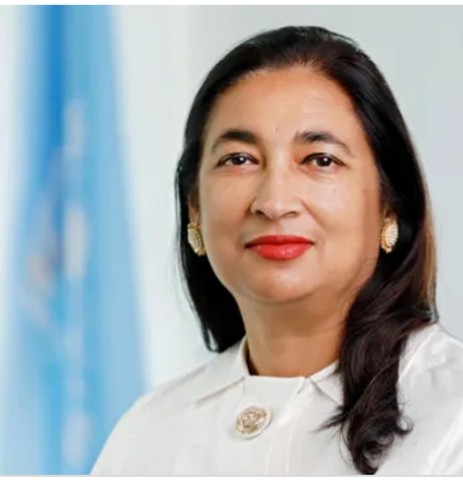|
Getting your Trinity Audio player ready…
|
By Joyce Mukucha
The United Nations entity dedicated to gender equality and the empowerment of women, UN Women in partnership with the Agence française de développement (AFD) have launched the “Public Development Banks Driving Gender Equality” report, with learnings from participating institutions on their contribution to gender equality.
The launch took place at the “Gender Equality, Climate Change and Funding” thematic session on the 20 October, organized by the two institutions in the context of the Finance in Common Summit (FICS) – Gender Equality on 19 and 20 October 2021 in Rome.
In a statement, UN Women highlighted that the report celebrates accomplishments and renews the sense of urgency, accountability, ambition, and transformative possibility around Public Development Banks’ (PBD) gender equality commitments (financial and otherwise).
“There is tremendous benefit for PDBs interested in understanding how they can address and measure their own gender equality commitments, as organizations and with their partners, to create a more inclusive and equal world. This report highlights how PDBs are currently tackling gender equality commitments, recognizing that this is a journey.
“UN Women is your ally in this journey. We are here to collaborate, as well as help implement and strengthen the work on gender equality and women’s empowerment”, said UN Women Deputy Executive Director Anita Bhatia.
The report offers a unique perspective by providing, through case studies, numerous concrete examples of how leading PDBs with various mandates, histories and methods of engagement have committed and delivered on the gender equality agenda both internally (as organizations) and externally (in programming, investments, and partnerships).
These included the adoption of gender responsive practices, mechanisms and tools, as well as gender mainstreaming approaches in the programming and funding cycle.
During the event, the nexus between gender equality and climate change was also highlighted as inherent to the achievement of the Sustainable Development Goals.
Seven speakers and numerous participants shared the contributions of development banks in this area, and shared research initiatives in this field.
Deputy General Director of AFD, Marie-Hélène Loison, said,”PDBs coalition is a real framework for sharing and exchanging experiences on best practices for the advancement of gender equality and women’s empowerment. The nexus between gender equality, climate change and biodiversity is an utmost priority for sustainable development, and Development Banks have a crucial role to play in this fight”.
The session also introduced the new signatories1 of the Paris Development Banks Statement on Gender Equality and Women’s Empowerment, namely the Financial Corporation for the Territorial Development S.A. of Colombia (Financiera de Desarrollo Territorial S.A.), the Bank of Northeast of Brazil (Banco do Nordeste), and the National Bank of Costa Rica (Banco Nacional), within a total number of signatories of 36 public development banks.
The Finance in Common Summit (FICS) was the second convening of PDBs to highlight their role in achieving the SDGs and reiterate their joint commitments to joint action for climate and sustainable development.
About the Finance in Common Summit The first-ever global meeting of Public Development Banks – The Finance in Common Summit – focuses on how Public Development Banks can influence the global financial system to better protect our planet and societies.
By rallying and challenging a new and significant global community with enhanced capacity of action, and by promoting sustained collective action, the Finance in Common Summit is a key milestone on the way to the COP26.
UN Women is a global champion for women and girls. It was established to accelerate progress on meeting their needs worldwide.
It supports UN Member States as they set global standards for achieving gender equality, and works with governments and civil society to design laws, policies, programmes and services needed to ensure that the standards are effectively implemented and truly benefit women and girls worldwide.
It works globally to make the vision of the Sustainable Development Goals a reality for women and girls and stands behind women’s equal participation in all aspects of life, focusing on four strategic priorities.
These include ensuring that women lead, participate in and benefit equally from governance systems, have income security, decent work and economic autonomy.
The other aspects are to endure that women and girls live a life free from all forms of violence as well as making sure they contribute to and have greater influence in building sustainable peace and resilience, and benefit equally from the prevention of natural disasters and conflicts and humanitarian action
